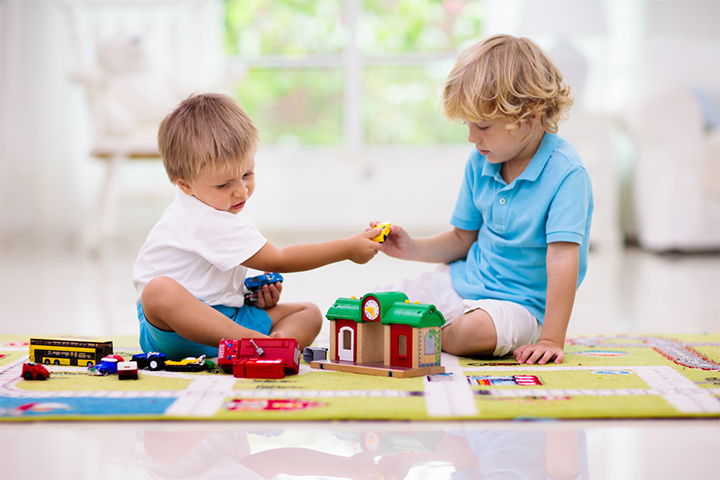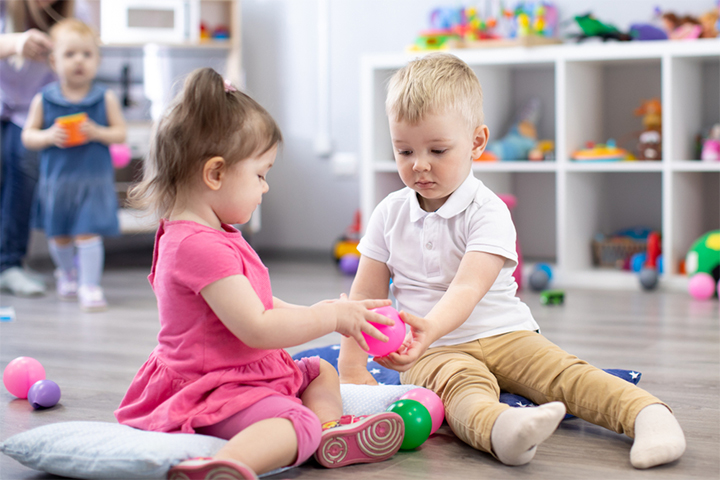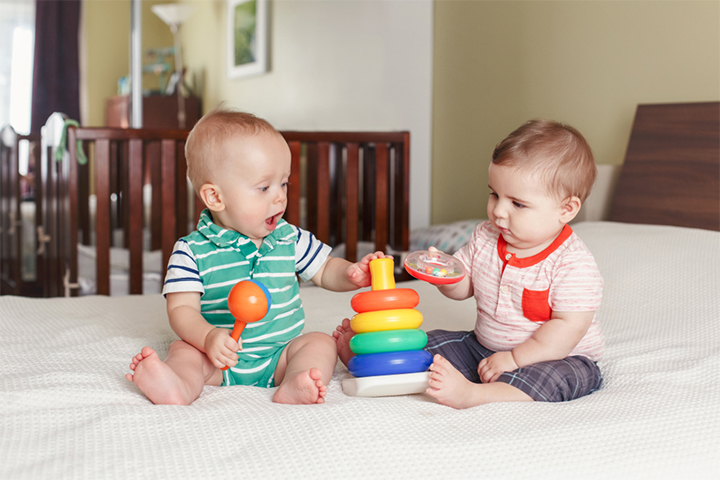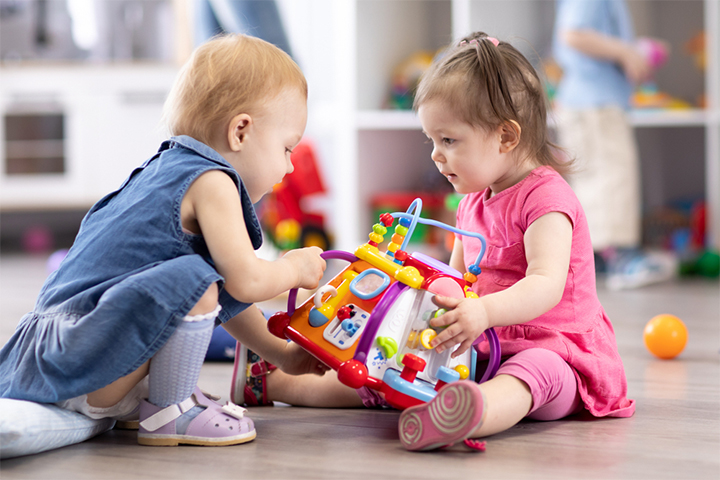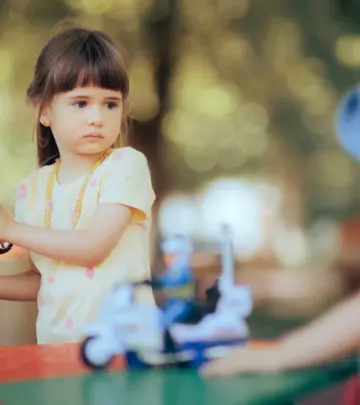
Image: Shutterstock
As responsible parents, you want to impart all suitable manners to your children. But when you witnessed your toddler cling to their favorite toy and scream “MINE” in the playroom, you immediately took it upon yourself to teach them to share. But obviously, it was not as easy as you assumed, was it? So why do young kids struggle to share, and do they really have to share when they are uncomfortable with the idea of parting with their belongings? Not really. Here in this article, we have discussed why you should only ask your little one to share once they are willing to do it themselves. Read on!
1. Preschoolers Aren’t Able To Grasp The Concept Of Sharing
Image: Shutterstock
Sharing is too complex a concept for toddlers to grasp. The whole point of trying to explain anything is lost on them as they are so young, and they will not listen to you anyway. That’s why you should hold off until your kid is a little older and when they have the cognitive and emotional maturity to grasp the importance of sharing.
2. To Strengthen Their Sense Of Identity, They Need To Acquire Material Possessions
Image: Shutterstock
Because they lack a sense of ownership as independent beings, infants have trouble grasping the idea of sharing. Having objects that are uniquely theirs might help children realize this concept. Therefore, they are not acting selfishly when they take something and declare it theirs.
3. Owning Helps Them Develop A Sense Of Belonging
Image: Shutterstock
Toddlers don’t realize that objects might belong to more than one person. For them, sharing meant permanently relinquishing possession of the toy. Further clouding the picture is that toddlers have no notion of time. So while the parent might not think twice about letting another child play with their child’s toy for a little while, the child may see the action as a permanent relinquishment of the toy’s ownership. Why? Because they can’t fathom the possibility that someone else may borrow it, use it, and then return it. The same thing happens when you say, “Play in turns,” and they don’t get it.
4. Their Actions Are Governed By Instincts Rather Than Reason
Image: Shutterstock
Young children cannot often regulate their actions. Therefore, no amount of reasoning on your part can change their minds if they have set their minds on having something all to themselves. This is when you need to share your favorite toy (any old and attractive toy will do), and ask them for their toy in return. Play with them in front of them to show that you won’t run away with their belongings.
5. Your Child May Start Sharing With You On Their Own
Image: Shutterstock
Once your child is given freedom of ownership of what they love, they will cease to be possessive about their belongings. They may even give you their favorite toy if they think you are sad or may tuck you into bed with their security blanket if they want to make sure you get well soon. It is all about patience and letting them discover the joys of sharing on their own. You may demonstrate to your child how much you appreciate their generosity by returning the favor in ways they understand. Therefore, you may turn these occurrences into learning experiences. It’s also crucial to make a child feel heard if they’ve had an item taken from them. Talk to your kid about how they think and how you may relate to them since someone took their toy. You might also remind them that it is their prerogative to maintain control over their possessions. For example, the child who took the toy might be counseled to seek permission to use it instead of taking it by force the next time.
But also, don’t force the issue. If you continually insist that your child share their toys with anybody else, they can learn to link this word with anything unpleasant, and this stage of “selfishness” and desire to have goodies just for them might endure longer. Your child’s worldview will develop over time, and they may even come to like sharing once they realize the joy it brings to others.
Sharing does bring joy to your life, but only when you are old enough to comprehend the joy of giving. Kids are naturally very generous, but if you find your little one clings to their things, there is nothing to panic about. It just means they need more time to realize that there is more fun in sharing toys than playing all by themselves. You can even ask them to take only those toys to the playroom that they don’t mind sharing instead of their favorite toys that might get lost somewhere. Of course, losing toys is another thing your child will have to cope with, but that is a whole new story! So, at what age did you first insist that your children share their toys with others? Is there anything you did differently that worked better with your kids? Let us know in the comments section! Happy parenting!

